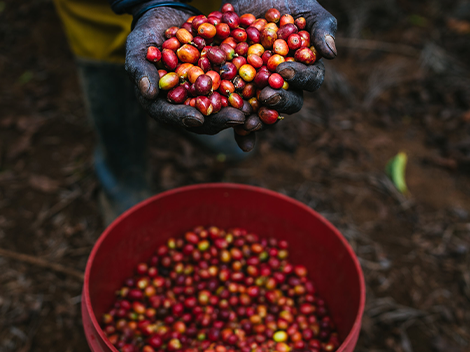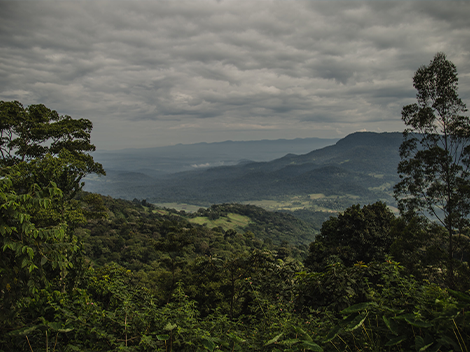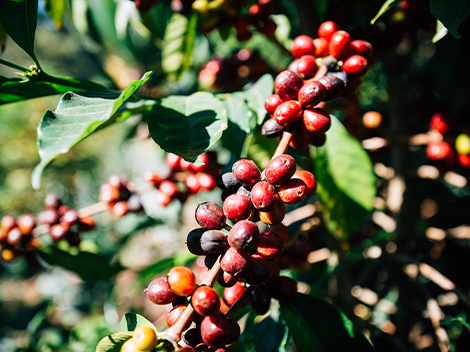Also of Interest
Kenya Nairobi AA - Riakiberu Washing Station *TOP LOT*
About This Coffee
About this coffee
This coffee is from the Riakiberu Washing Station in the Central Province north of Nairobi in Murang'a County. Around 700 small farmers bring their cherry to this washing station. With ideal conditions for coffee growing, farmers benefit from the mineral rich volcanic soils, typical for the area. The area experiences an annual rainfall of 1,200 mm at 1,650 masl. Riakiberu Coffee Factory's long term goal is to encourage increased production through farmer training and agricultural seminars that are conducted year round. Their wish is to establish a transparent, trust based relationship with the smallholder farmers and help support sustained industry growth in Kenya, whilst bringing premium quality and premium prices to the farmers. The Riakiberu coffee factory belongs to the Kamacharia Farmers Cooperative Society. From funds set aside from the previous year's harvest, members of the cooperative can access pre-financing for school fees, access to farm inputs and funds for emergency needs. This area has two harvests, one from March to May, and the main harvest from October to December.




History of Coffee in Kenya
It seems likely that coffee grew wild within the region that would become Kenya, buried deep inside impenetrable forests, or perhaps hiding in plain site; but it wasn’t until 1895 that missionaries both protestant and catholic attempted to grow coffee for commercial purposes. The 100 seeds from Reunion Island that would serve as progenitors to the Kenyan coffee industry arrived on a train, carried by priests belonging to an order known as “Holy Ghost Fathers.” On August 12th, 1899, they arrived at the spot that would quickly become the country’s capital city. One of the early protestant medical missionaries was Dr. Henry Scott. After his death in 1911, a new hospital complex was named after Dr. Scott and when the department of agriculture took over the complex in 1923 they kept the name: Scott Agricultural Laboratories, or “Scott Labs.” This is the origin of the “SL” in SL28 and other coffee varieties selected at the lab.
Growing Coffee in Kenya
Coffee is grown through the highland regions of Kenya, including Kisii, Nyanza, and Bungoma in the west; Nakuru and Kericho in the Great Rift Valley; Machakos, Embu, and Meru to the east of Mt. Kenya; and the Taita hills near the coast. The largest and oldest coffee growing areas are the central highlands, particularly Nyeri, sandwiched between the foothills of Mt Kenya to the east and the Aberdare mountain range to the west. Most coffee in Kenya is grown between 4,500 and 6,500 feet. Nearly all of Kenya’s 700,000 coffee producers are small land holders belonging to cooperatives. Most common varieties in Kenya are Ruiru 11, SL28, SL34, and K7. SL34 and K7 were developed from heirloom bourbon known as “French Mission,” which was the primary variety grown prior to the 1930’s that can still be found today, as can Blue Mountain on some farms. Kenyan coffees are graded by screen size and while there are several grades, specialty coffee is AA, AB, or PB (peaberry), used in combination with quality grade FAQ or FAQ Plus (Fair Average Quality).


- Cup Score 86.5
- Farm Name Riakiberu
- Producer Type Washing Station
- Processing Washed
- Bag Type Grain Pro / Ecotact
- Plant Species Arabica
- On Sale No
- Top Lot No
- Status Spot
- Coffee Grade KEN CA WA AB
- CTRM Contract Number P608097-3
- Country of Origin Kenya
- Warehouse Continental NJ





